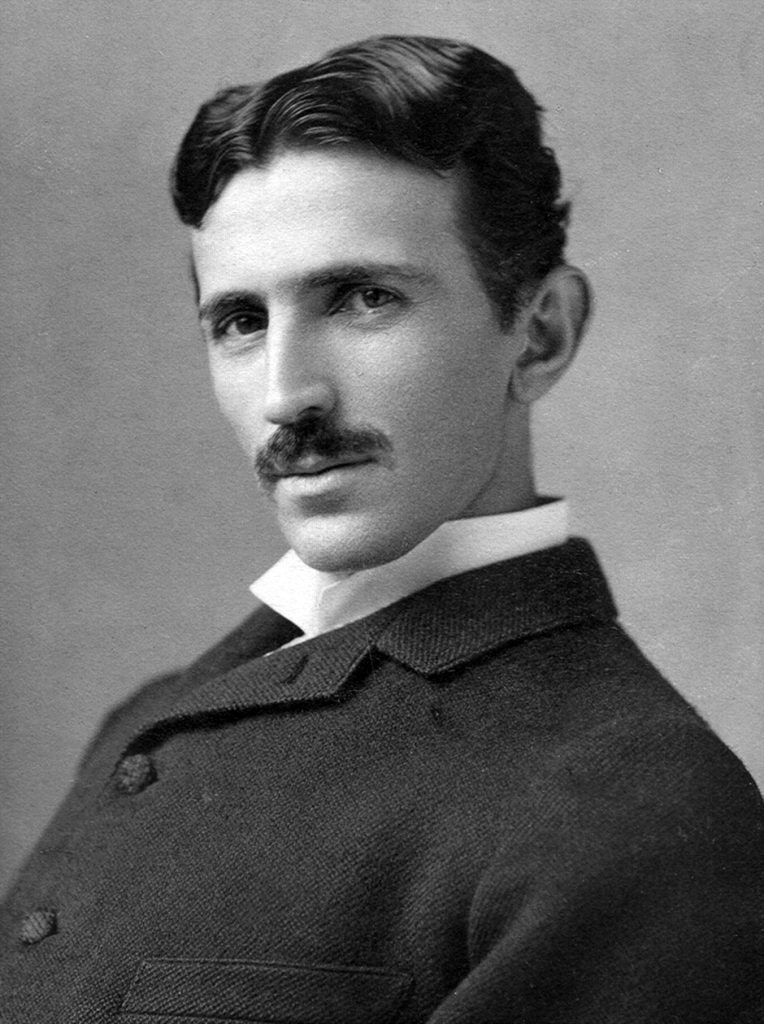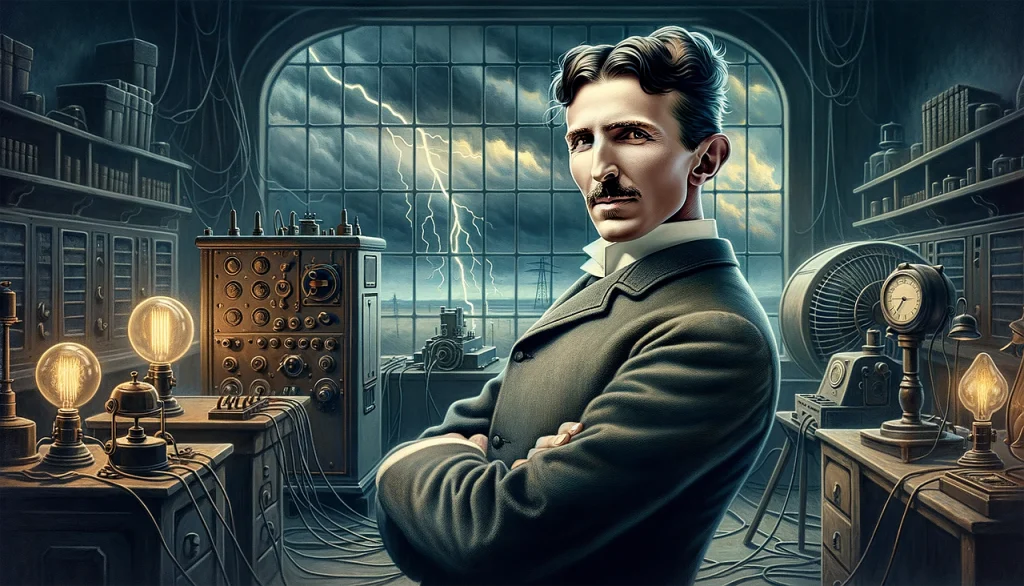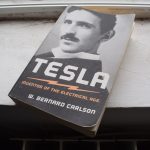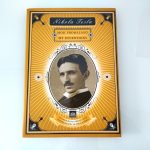May the 21st, 2024 – Did you know that Nikola Tesla suffered from OCD? I do, too. Here’s how it allowed me to sympathise with the eccentric, notoriously difficult inventor.
When people think of Nikola Tesla, they think of the wonders predicted and created by this genius inventor. Unless you’re from this part of the world, and you’re obsessed with arguing about whether or not he was a Croat or a Serb. I think about something quite different, and I’m probably one of the few who do. I think first of us both being left-handed and born on July the 10th, and then of his OCD.
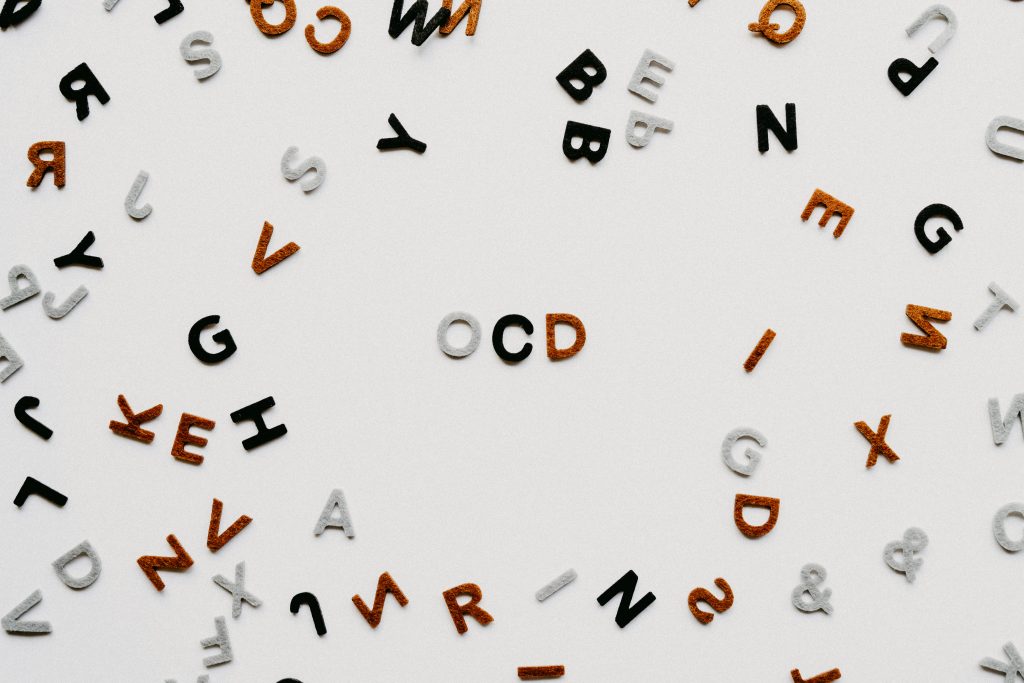
Nikola Tesla was plagued by untreated OCD throughout his life. It never abated. The first more obvious symptoms of the disorder occurred in around 1917. He became obsessed with the number 3, and began refusing to do anything that didn’t correspond with the number in some way. Even much, much later in life when he was living in hotels in New York, he would only stay in hotel rooms that bore numbers which could be equally divided by 3. Lest something bad happen.
He described wanting to circle a city block three times before entering a building when in New York. When leaving that building, he had to turn right. Then followed a walk around the entire block before he felt “free” to leave that obvious OCD-imposed prison. Something bad might happen if he didn’t do this.
If I was half decent at maths, I can imagine myself being very tempted to do the same. Thankfully, numbers aren’t and never have been my thing.
In all my years in publishing, I have never been one to get too personal. I’m not sure why this is. Perhaps it’s because I don’t feel I have a great deal to say about myself. Perhaps it is my desire to always have a clean separation between work and privacy. But, here goes. Be gentle!
I have OCD. I was diagnosed last year after suspecting it for very many years, and after a previous false diagnosis of an anxiety disorder. It turned out that that “anxiety disorder” was a mere symptom of something far greater, and I can recall the feelings which bubbled up in me when the psychiatrist told me I actually had OCD. Suddenly, all the jokes people close to me had made about me having OCD were actually gentle suggestions to maybe investigate further. What’s that saying about jokes again? That all humour has a dose of truth in it? Well, I suppose it’s a realistic observation.
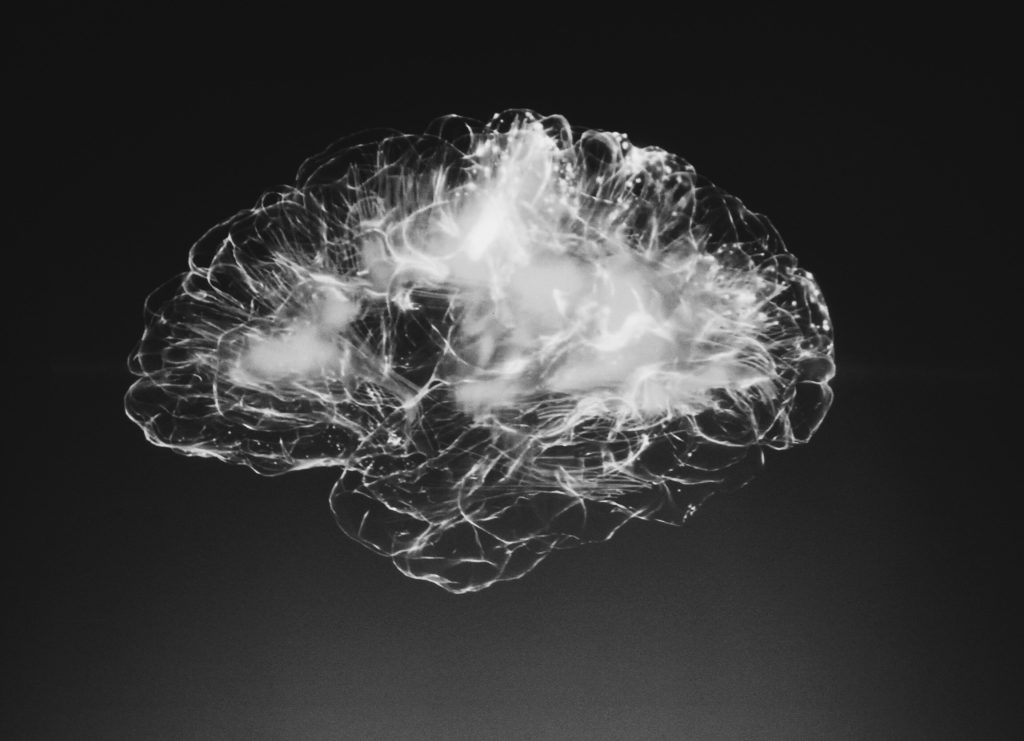
After a few sessions, I learned that I’d scored 51 out of 51 on a rather complex and in depth test (and no, it isn’t the free online one!). I’d apparently showed an array of what were (at least to the psychiatrist) rather obvious OCD behaviours without realising at all.
“You’ve got obsessive compulsive disorder, and quite obviously so. I’m going to start you on a treatment plan and anti-depressants today. I’ll review your anxiety medication. You’re not a nutjob!”
As I received my diagnosis and assurance that I was, in fact, not a nutjob, an array of things which had been rather jumbled in my mind until that point – simply came together. I made sense to myself. I made sense of myself. I recalled all the times I’d have a total emotional breakdown in the privacy of my bedroom over, well, nothing.
I remember my parents deciding to sell a car I loved (a little red Metro). They thought I was merely an attached child who would miss the car because the license plate bore the three first letters of my name (LAU), and because my favourite colour was (and still is) red. It wasn’t remotely because of that. I felt strongly that selling the car would result in something bad happening, and I felt an unwavering sense of impending doom.
How on earth does a child even begin to explain such a feeling or thought process? I struggle doing so at almost 32 years old! Being dismissed as children so easily are was a worse fate in my mind than simply pretending that yes, I’d miss the license plate and the colour red. And so I kept it to myself.
My dad is a frequent do-it-yourself type of person. Having worked for decades in the building trade, he has the confidence and know-how for the vast majority of things – and so many Saturday or Sunday mornings were spent at Wickes (a large DIY store), purchasing tools, paint, nails, screws or what have you. A young girl’s idea of hell, right? Wrong! I would gladly go and collect each one of the free leaflets on offer there, about tiling, bricks, screwdrivers, drills, cement and God only knows what else. I had to make sure they were in alphabetical order, and no two could be the same. Dog-eared leaflets? No thanks. Leaflets with marks on them? No!
I’d then take them home and put them in a folder, again in alphabetical order, or perhaps colour coded, and keep them safe. When stressed or upset, I’d look at these leaflets in their perfect folder, in perfect order – and mental clarity and calm would be restored.
“But all kids collect things, don’t they?”
“Yes. Things they’re interested in. Were you interested in tiling at age 7, Lauren?”
Lightbulb moment. I hate those.
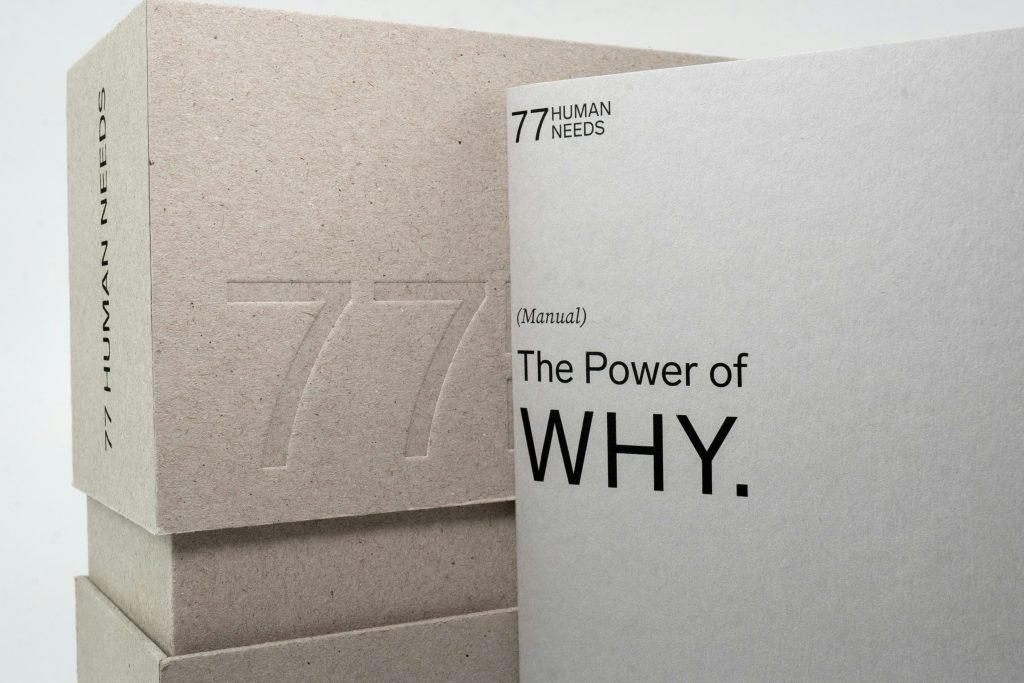
Another funny thing I did was collecting football stickers. I just love football. (I can’t stand it), but apparently that’s beside the point. I did not need to know who on Earth Frank Lampard or Oliver Khan were in order to collect stickers of them. Doing so calmed me inside, and removed this creeping feeling of dread I had that something bad might happen to someone I care about if I didn’t. I can remember going to school and asking my mum to stick the stickers (which I’d amassed plenty of by then) in the sticker album. She had to do it correctly. What if she mistakenly stuck Frank Lampard in Pele’s place? What if Wayne Rooney accidentally got ripped in half or decapitated when removing him from the sticker pack? Oh God! The anxiety that swept over me as I sat in science class learning about how frogs breed (or whatever) was almost too much to bear.
Thankfully, she’d done it perfectly. It all corresponded. Nothing was out of place. There was no ripping or dog-eared stickers. Phew. Nobody was going to die after all. Now that Diego Maradona was in the correct place, I didn’t need to keep picturing loved ones’ funerals and becoming so upset by it that I’d go to my room and cry. (All these people were and remain perfectly fine, by the way! As you can see, OCD makes a tonne of logical sense!).
I used to scratch the soles of my feet on a wire-wool doormat until blood poured from them. Did I have athlete’s foot? Nope. A fungal infection maybe? Nope. An allergic reaction? Nope. I used to bite my thumbs until I couldn’t use them it stung so much. It just calmed me down, and stopped the feeling of dread.
“Self-mutilation…”
“Self-mutilation? Bit dramatic…”
“No, it’s accurate. It’s a common symptom of acute OCD.”
Another bloody lightbulb moment. Yep, I still hate those.
I could go on and on about some, erm… less charming thought processes. But I don’t want to get too dark. I’ll let Dr. Google inform you a bit more on OCD. Let’s just put it this way, OCD is not being abnormally neat and tidy. Nor is it germaphobia. Nor is it wanting all your pens facing the right way up. OCD, when not treated, can be a crippling psychiatric problem which will have you convinced that you’re the worst person on earth. It isn’t a quirk, and it isn’t something to joke about. Ain’t no guilt like OCD guilt.
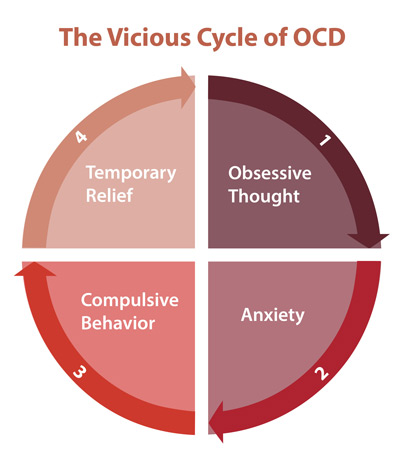
So, now you’ve got 10% of the background, you might see how I began reading Nikola’s story from a different angle. I saw him through eyes that more deeply understood an aspect of him that has been conveniently glossed over, but which ruled his harsh inner world.
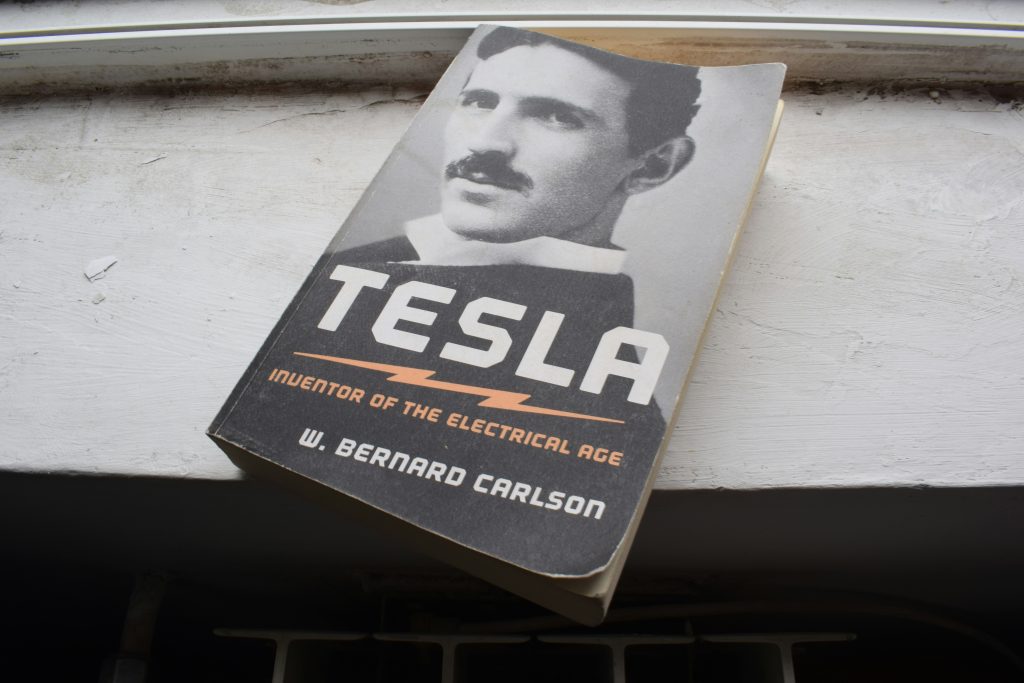
It also caused me to be a bit indignant about some descriptions of his “futuristic mind” which anyone with OCD will tell you were merely mental compulsions. Him picturing “something bad happening to his mother” was not “the futuristic calling to invent to shadowgraph, the X-Ray’s predecessor”, it was an OCD mental compulsion. His “flashes and visions which disturbed and alarmed him” were also not a symptom of some higher calling Tesla had bestowed upon him, they were OCD intrusive thoughts. He was admitted to hospital after a breakdown not because the Universe had placed such a task on his shoulders, but because he had untreated, and by this point out of control OCD.
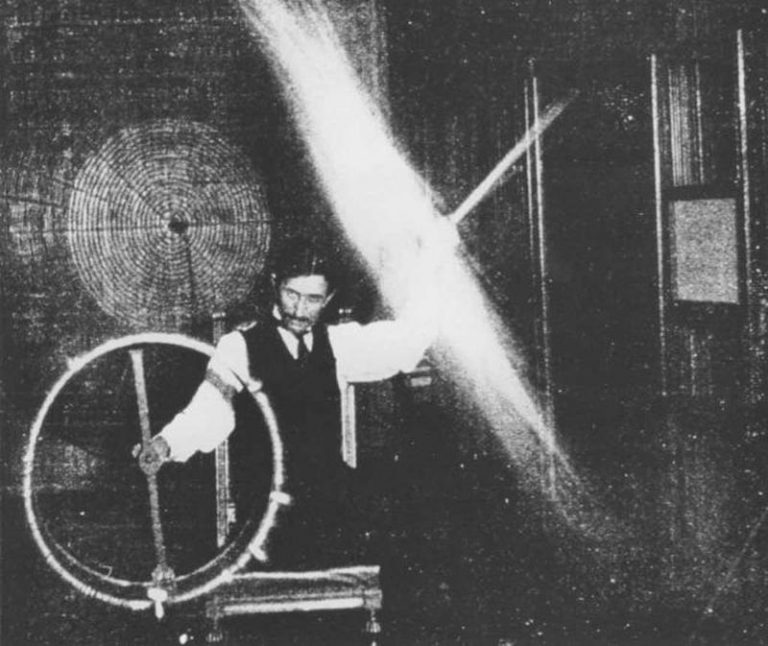
I say that not to discredit Nikola Tesla in any way whatsoever. He was a genius, there’s no doubt about that. His brain was out of the ordinary in every way imaginable. But he was a human being who had OCD, and was often displaying manifestations of it. On top of that, the words used surrounding Tesla and his OCD are sometimes a little too glamorous, and it can be dangerous to start doing that with psychiatric conditions.
It was fascinating to me to learn about his need to swim exactly 33 laps in the pool. If he forgot what number he’d reached, he wouldn’t wager a guess or just keep going without knowing – he’d start again. If he forgot again. He’d start again. And again. And again. Thankfully, Nikola had a head for numbers, else he’d finally emerge from the water shaped like Johnny Bravo.
This need to do 33 wasn’t just an anal behaviour. It was because in his mind something bad would happen if he didn’t do 33 laps. Something bad would happen if he skipped a lap or forgot one. I can relate to this feeling so incredibly well. When exercising, I need to make sure my numbers are exact. If I lose count, I will start again from zero. No questions asked. I’m totally logically aware that there is absolutely no correlation between me doing 300 squats and my mum’s state of health. I know that she won’t get diagnosed with terminal cancer if I only do 298. Doesn’t stop the catastrophising and compulsion, though! I know there’s no link between my squats and my mum’s mortality. Nikola Tesla knew there was no link between doing 33 laps of a pool and his private fixations. People with OCD know this. Please don’t tell us this – we’re neurotic, not thick!

Tesla described his fear of acknowledging the success of something, and then performing idiosyncratic rituals that calmed him. Oh boy, could I relate. OCD makes me convinced that if I dare say something is going well, it will jynx it and cause it to fail spectacularly.
Tesla also had disordered eating, claiming that he would become physically ill if he ate more or at a different time. I’m not that rigid, but I too suffer similar patterns. He talked about how certain foods and textures repulsed him to the point of genuine disgust. Misophonia, you say? Yep, got that too! Wanting the food to be positioned in a certain way or you feel you cannot eat it – my mental compulsion to re-arrange a plate or simply get it away from me is so strong I sometimes have trouble not indulging it.
Now, Nikola Tesla definitely had some eccentric behaviours that I cannot relate to. A person who has OCD has a multifaceted personality just like anyone else, and I wouldn’t like to paint him with a single brush. There are some individuals more intelligent than I am who believe he was also autistic. As someone who is fundamentally not autistic, I feel unable to comment on that. His sexless and intoxication-free life is lost on me. His curling of his toes a certain number of times to “stimulate his brain” sounds like an autistic trait as well. His difficulties with communication and conversation and his exhaustion at both are also not something I suffer from (try shutting me up, I dare you!). His disgust at shaking hands or touching people’s hair is also not something I personally have issues with. I’ll take the love of pigeons, though.
I don’t know what truly compelled me to write this. Perhaps it is because I see the tortured and endlessly talented Nikola in a different way. A deeply empathetic way. I know how terribly it hurts to hear “well, just don’t think like that” from someone who has no business discussing OCD. I know how exhausting it is to be consumed by the intrusive thoughts, fixations and the eternal hamster wheel of “what if” and “if I do this, then this totally unrelated thing won’t happen”. I know that the anxiety and depressive episodes are brutal. Waking up with your heart racing because the intrusive thoughts about harm coming to your loved ones are already awake and ready before you’ve even opened your eyes properly can have you in a total mess before you even get out of bed. Perhaps Nikola’s mental compulsion led him to believe he could escape them by dividing his room number by 3. If so, he has my complete understanding.
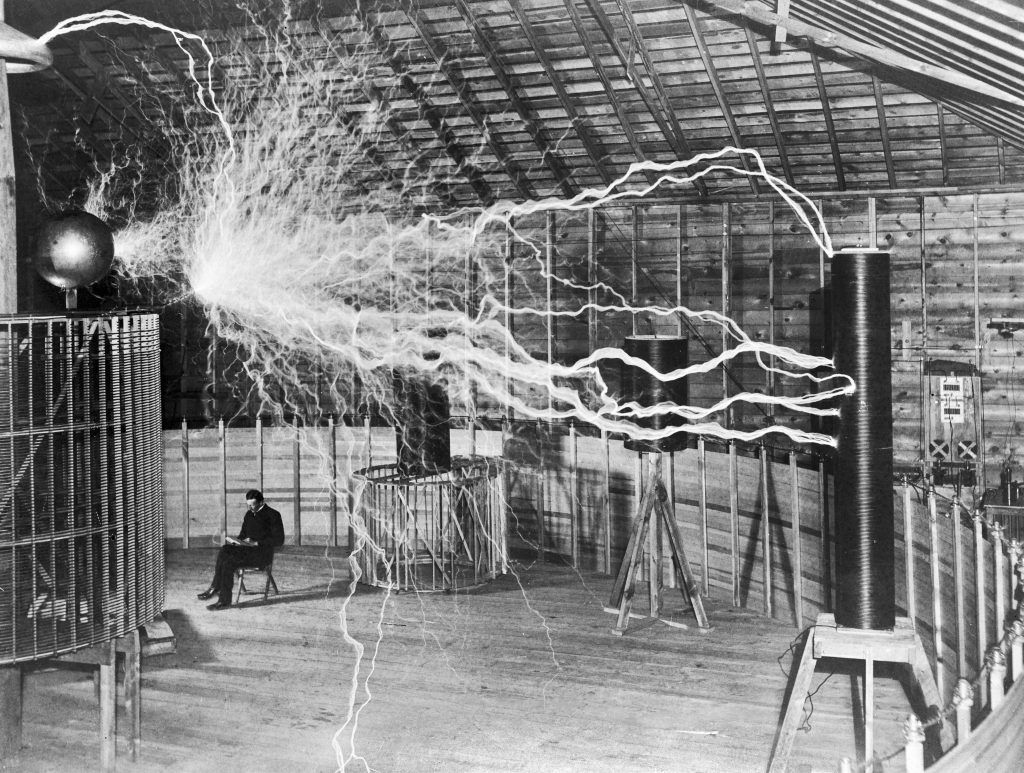
People often see the sometimes rather charming personality traits of people with OCD or an OCD sub-type. They don’t see the utter turmoil boiling away inside which drives them. They don’t understand feeling like you’re the worst person on the face of the planet for no reason as colleagues praise you. They don’t understand the need to know everything, now. Because who knows what might happen otherwise?
OCD is the hamster wheel from hell that cannot be disembarked, especially when left to rot away untreated. It isn’t glamorous. I am among the lucky ones who, despite getting a diagnosis and the appropriate therapeutic and pharmaceutical treatment much, much, MUCH later than I should have, has it under control for the most part.
If you resonate with any of the symptoms I have described, attributed to or described by Nikola Tesla, please seek professional help. Don’t forget about the insufferable compulsions which were likely the catalyst of Nikola’s dogged determination, miraculous brain-power and inventions. As if he wasn’t to be praised enough, knowing what lay behind it all means he deserves 100,000 times more than he gets. And then some.
